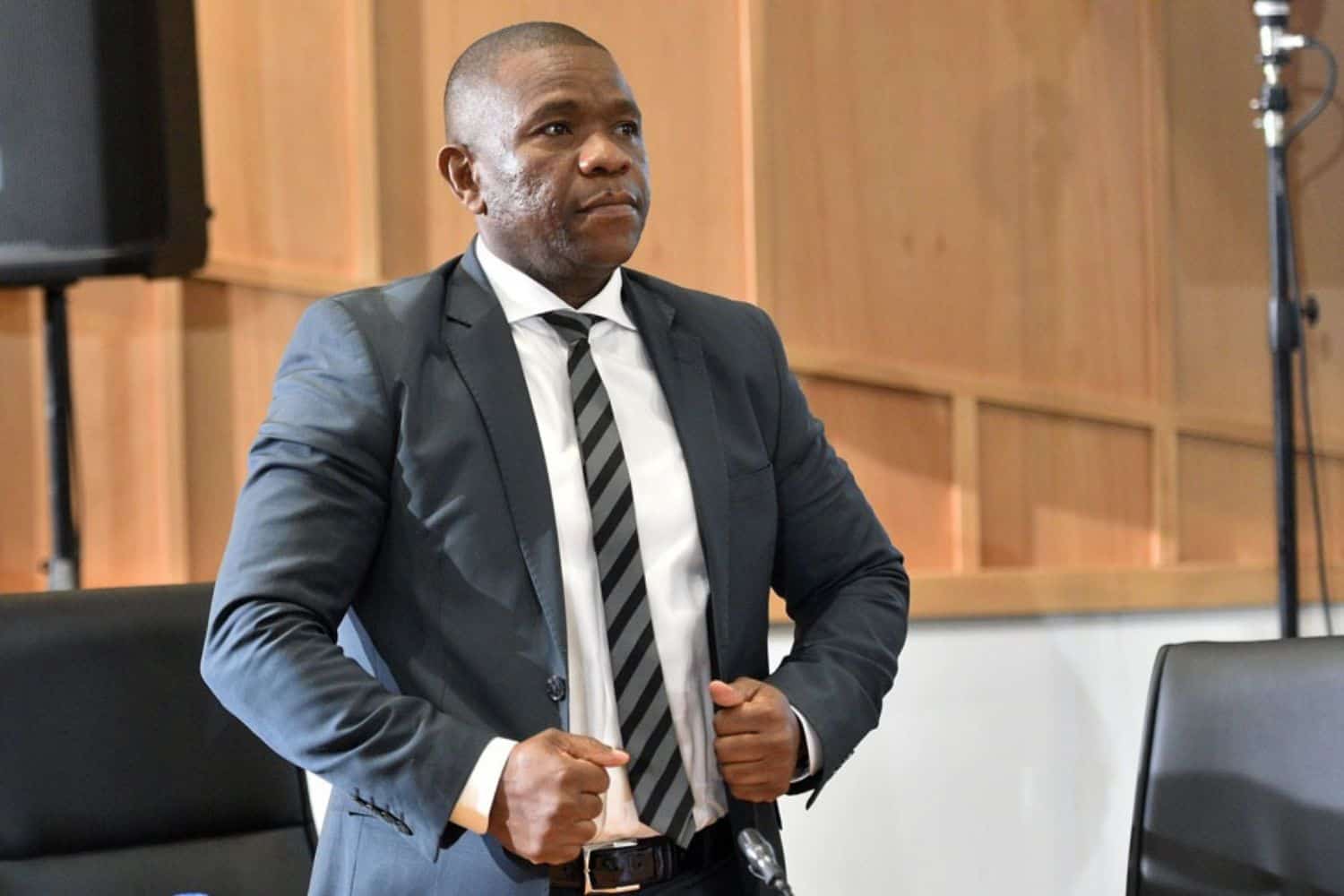The KZN top cop has insisted that the evidence is already on record.

KwaZulu-Natal (KZN) police commissioner Nhlanhla Mkhwanazi has told the Madlanga commission that evidence exists proving Police Minister Senzo Mchunu’s involvement with crime syndicates.
Mkhwanazi took the stand on the first day of the judicial commission of inquiry’s public hearings at the Brigitte Mabandla Justice College in Pretoria on Wednesday.
The inquiry was launched after Mkhwanazi publicly raised serious concerns about the criminal justice system almost three months ago.
The commission is investigating allegations of criminality, political interference and corruption in key state institutions, including the South African Police Service (Saps) and the National Prosecuting Authority (NPA).
Mkhwanazi testifies at Madlanga commission
Resuming his testimony under the guidance of evidence leader Mahlape Sello after lunch, Mkhwanazi said he had received a letter on 2 January from a friend which appeared to confirm Mchunu’s decision to dismantle Saps’ political killings task team in KZN.
“I had not received any communication from anyone with regard to the disestablishment of the team.
“I learnt through a WhatsApp message with a copy of the letter that was sent by a friend,” he told the commission on Wednesday.
ALSO READ: Madlanga Commission: Mkhwanazi warns criminal justice system risks total collapse
The letter, dated 31 December 2024, had been addressed to national police commissioner Fannie Masemola.
Mkhwanazi told the commission the disbandment would have “severe implications” because ongoing investigations, some of which were already before the courts, would be affected.
“Getting it [the letter] from a private person who is not involved in police operations was surprising,” he said.
Mchunu’s role questioned
The commission’s chairperson and former judge Mbuyiseli Madlanga asked whether Mchunu had the authority to dismantle the unit.
Mkhwanazi replied that while the law empowers the minister to set policy, it does not give direct control over police operations.
“That’s another implication of the letter, as it was signed by the minister, talking to the operational works of the police.”
READ MORE: Leave and a commission don’t make Mchunu immune from prosecution, parliament hears
Mchunu’s decision to dissolve the task team on the grounds that it was not contributing to policing was “misplaced”.
“I disagree with the assessment of the minister is this regard,” he said, noting that the unit had a high success rate.
“To me, it was a wrong conclusion that the minister has reached, which is why it became a matter of concern.”
The KZN commissioner said he believed that someone may have influenced Mchunu — currently on special leave — to disband the task team.
Mkhwanazi’s attempts to engage police minister
Furthermore, Mkhwanazi told the commission he had made repeated efforts to discuss the issue with Mchunu, but this never occurred.
“I had an engagement with the chief of staff right at the beginning, because he is a person I knew very well, and I even asked the chief of staff to try to arrange a meeting with the minister so that I could tell the minister about the consequences of the letter that was written.
READ MORE: ‘He’s the one who started this mess’: Malema calls for Mkhwanazi to be summoned
“After engaging with the national commissioner, I did not leave it there. I continuously tried different individuals outside the structure of government — people that I thought the minister might listen to.
“I tried to engage them to try and reach out to the minister so that we can talk about this, but that did not give me any success.
“I then took a decision to engage the minister directly in the form of a WhatsApp.
“He acknowledged that and he was to set up a meeting, but to date that meeting has never materialised.”
Alleged syndicate links
Mkhwanazi further emphasised his belief that Mchunu “to some degree” was involved with criminals.
“Communication [with these associates] seems to suggest that the minister is fully involved in the decision that this syndicate is taking.”
He added that the evidence was already on record.
“Although some of it will perhaps need to be [revealed] in camera, the evidence is there that will support my conclusion on this,” Mkhwanazi said, adding that members of the task team would corroborate his testimony.
“We will be able, under oath, to confirm that indeed that is evidence that we have collected and we have no reason not to believe that it is the real evidence that proves the links between the syndicates and the minister himself.”
In his explosive July briefing, Mkhwanazi claimed he had obtained messages exchanged between businessmen Oupa “Brown” Mogotsi and Vusimuzi “Cat” Matlala.
The messages, he said, pointed to collusion in which Mogotsi allegedly sought to obstruct members of the political killings task team from investigating Matlala, who was denied bail in his attempted murder case on Wednesday.
NOW READ: Subpoena route against Mkhwanazi ‘not desirable’, ad hoc committee decides






